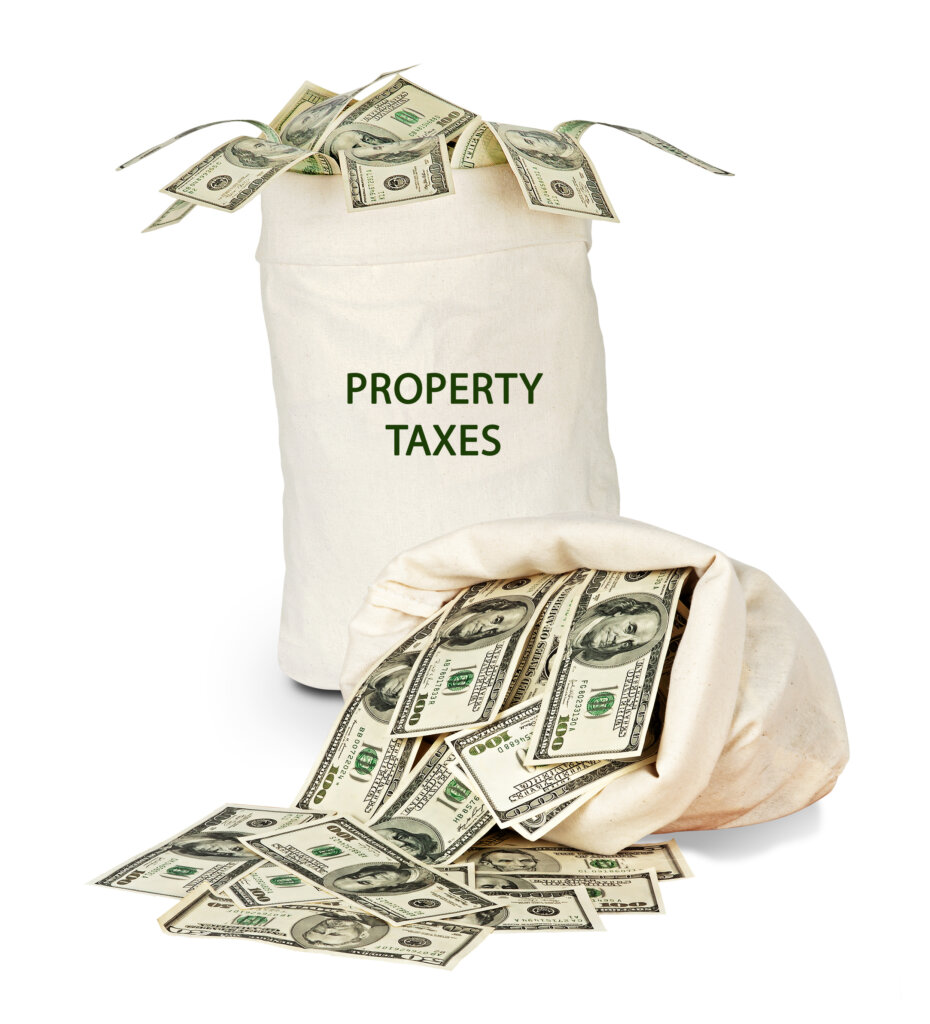Understanding Closing Costs In Texas: A Comprehensive Guide
People in Texas who want to sell their homes need to be aware of many costs. These are called “closing costs,” they can add up quickly and have a significant effect on the amount of money they make from the sale.

Anyone who owns a home in Texas and wants to sell it needs to know about these costs. Sellers may have to pay many types of closing costs.
This detailed guide will list all of them, from title fees and transfer taxes to real estate agent commissions and home inspection fees.
When you’re done, you’ll know exactly what to expect and how to handle these costs when you sell your Texas home.
We Buy Houses in all counties and cities in Texas, including Houston, San Antonio, Dallas, Austin, Fort Worth, El Paso, Arlington, Corpus Christi, and Plano.
Table Of Content
- Understanding Closing Costs In Texas: A Comprehensive Guide
- Who Is Responsible For Paying Closing Costs In Texas?
- Unpacking The Closing Costs For Buyers In Texas
- Demystifying The Closing Costs For Sellers In Texas
- Strategies For Decreasing Your Texas Closing Costs
- Connecting With A Reliable Local Real Estate Agent In Texas
- Breaking Down The Complexities Of Texas Closing Costs
- How Property Taxes Impact Closing Costs In Texas
- Protecting Your Investment: The Importance Of Title Insurance In Closing Costs
- Preparing For Additional Expenses During The Closing Process In Texas
- Taking Advantage Of Closing Cost Assistance Programs Available In Texas
- Negotiating And Reducing Your Closing Costs As A Buyer Or Seller In Texas
- Utilizing Tools And Calculators To Estimate Your Total Closing Costs
- Hidden Or Overlooked Fees That May Contribute To Your Total Closing Cost
- Factors That Can Influence The Amount Of Your Closing Costs In Texas
- Tips For Budgeting And Planning Ahead For Your Texas Closing Expenses
- What Closing Costs Do Sellers Pay In Texas?
- What Is The Most Seller Can Pay In Closing Costs?
- Do Sellers Pay Property Taxes At Closing In Texas?
- How To Calculate Closing Costs In Texas.
Who Is Responsible For Paying Closing Costs In Texas?
To sell a house in Texas, you need to know about the different closing costs. As a seller, these costs can add up quickly and hurt your bottom line.

That being said, who will pay these closing costs? Texas law says that the buyer and seller should each pay their fair share of the closing costs.
However, this can be worked out between the parties and written into the purchase deal.
Knowing that the seller usually pays for things like the title insurance policy and transfer taxes is essential. On the other hand, the buyer may pay for things like assessment and loan origination fees.
As a seller, you need to be aware of all the possible closing costs so that the deal goes smoothly and there are no surprises.
Unpacking The Closing Costs For Buyers In Texas
When buying a house in Texas, you should know the different closing costs. If buyers aren’t ready, these costs can add up quickly and catch them off guard.
In Texas, buyers must pay various fees, such as evaluation, title insurance, loan origination, and escrow fees. The county or city where the land is located may also have to pay transfer taxes and recording fees.
To avoid surprises on closing day, buyers must carefully consider their expected closing costs and make a budget that fits them.
Demystifying The Closing Costs For Sellers In Texas
People in Texas who want to sell their homes need to be aware of many costs. These costs, called “closing costs,” can add up quickly and greatly affect the sale’s total profit.

To succeed, sellers must grasp these costs and fully understand how they are determined. Title insurance, transfer taxes, real estate agent fees, and home warranties are some of the closing costs that Texas sellers usually have to pay.
Sellers may also have to pay fees for things like preparing documents, home checks, and appraisals. By taking the mystery out of these closing costs and learning why they’re necessary, sellers can better get ready for the money side of selling a home in Texas.
Strategies For Decreasing Your Texas Closing Costs
When people in Texas want to sell their homes, closing costs are one of the costs they often forget about. These costs can add up quickly and have a big effect on the overall profit from the sale.
On the other hand, there are things you can do to lower your Texas closing costs and keep more of your own money. Talking to your real estate agent about getting a lower fee rate is a good idea.
You can also compare different service providers, like title companies and lawyers, to find the best prices. You could also sell your home “as-is” to avoid having to pay for repairs or an inspection.
Last but not least, time is very important. Try to close your deal near the end of the month, when taxes and interest fees will be lower. If you follow these tips, you can lower your closing costs in Texas and make the most money when you sell your home in the Lone Star State.
Connecting With A Reliable Local Real Estate Agent In Texas
One of the most important things to consider when selling a house in Texas is the seller’s closing costs. These costs need to be paid at the end of a real estate deal, and they can add up to a lot.

That’s why it’s important to find a trustworthy real estate agent in Texas who can help you through the process and explain all the costs that might come up. A skilled agent will have worked in your market before and can give you great advice on keeping these costs as low as possible.
They can also help you negotiate fees and find answers that don’t cost as much. If you work with a reliable real estate agent in Texas, you can ensure that the process of selling your home goes smoothly and that you know all of the closing costs involved in Texas.
Breaking Down The Complexities Of Texas Closing Costs
As a Texas home seller, it can be hard to track all the closing costs involved in selling your home. Some fees that need to be paid before the sale can go through are transfer taxes and title insurance.
These costs can change depending on where the property is located and how much it costs, making things even more complicated. Knowing all the different costs you might face during the closing process is very important.
This comprehensive guide will help you understand the various Texas closing costs and be ready for all the costs connected to selling your house. It breaks down each cost and explains its purpose.

How Property Taxes Impact Closing Costs In Texas
Texas home buyers need to be aware of many costs when they decide to sell their homes. Closing costs are one of them. These can be different based on where the property is and how it’s set up, but property taxes have a big effect on closing costs.

Property taxes in Texas are usually due at the end of the year and can be a big cost for homeowners. When a house is sold, These taxes must be split between the buyer and seller.
This means the seller must pay their share of the taxes until the close date.
This may increase the cost of selling a house in Texas, so you should consider it when you’re planning your closing costs.
Protecting Your Investment: The Importance Of Title Insurance In Closing Costs
People in Texas who want to sell their homes need to be aware of different closing costs, which can quickly add up.

Getting title insurance is important for a seller to protect their property. This kind of insurance guards against problems you can’t plan for with the property’s title, like liens or disagreements over who owns the property.
Title insurance protects sellers in case problems arise after the sale. Without it, buyers could lose a lot of money. When considering seller closing costs in Texas, you need to include the cost of title insurance.
It gives you peace of mind and protects your investment if there are legal issues about who owns the land.
Preparing For Additional Expenses During The Closing Process In Texas
There may also be unexpected charges, like courier fees or legal fees. Sellers should read their closing disclosure carefully and ask their real estate agent or lawyer about any possible extra costs so they are not surprised.
If you plan ahead and set aside extra money for these costs, the Texas closing process will go more smoothly and without stress.
Taking Advantage Of Closing Cost Assistance Programs Available In Texas
If you live in Texas and want to sell your home, you should be aware of the different closing costs.

But if you are selling your home, you might be able to use one of the state’s programs that help with closing costs. These programs help buyers pay for some of the costs of selling their homes, such as appraisal fees, title insurance, lawyer fees, and more.
Using these apps might save thousands of dollars, making the selling process cheaper. Before applying, you should know what to do to be eligible for each program. This way, you can get the most help and pay the least amount possible.
Negotiating And Reducing Your Closing Costs As A Buyer Or Seller In Texas
When buying or selling a home in Texas, closing costs are an important consideration. These are the fees and costs associated with the last part of the real estate deal.
Whether buying or selling, you can save a lot of money by bargaining and lowering these costs. Title insurance, appraisal, loan origination, and attorney fees are typical closing costs.
But there are ways to talk things out and maybe even lower these costs. As a buyer, you can look at different lenders and compare how much they say the close will cost.
As a seller, you can try to get lower fee rates from your real estate agent or offer to pay some of the buyer’s closing costs. In the end, buyers and sellers can save money on their Texas closing costs if they are aware of these possible costs and reduce them.
Utilizing Tools And Calculators To Estimate Your Total Closing Costs
People in Texas who want to sell their homes should be aware of all the costs involved. Figuring out the total closing costs is an important part of the process.

Luckily, there are many tools and apps that can help you get a better idea of how much these things will cost.
These tools give you a thorough breakdown of your expected closing costs by looking at things like the value of the home, where it is located, and the type of mortgage you have.
Using these tools, you can better plan for the financial aspects of selling your home and ensure there are no surprises during the closing process.
Hidden Or Overlooked Fees That May Contribute To Your Total Closing Cost
When selling a house in Texas, it’s important to know all the fees and costs that could increase your total closing costs.

Some costs, like agent fees and title insurance, are easy to see and understand. But other costs are harder to see or remember and can add up quickly.
Appraisal fees, transfer taxes, filing fees, and even property taxes are split up into payments. To avoid being caught off guard by unexpected costs, buyers must carefully read their closing statement and ask questions about any charges they don’t understand.
Ignoring these secret fees could significantly affect the amount of money you make when you sell your house.
Factors That Can Influence The Amount Of Your Closing Costs In Texas
Many costs need to be considered when selling a house in Texas, such as closing costs. The location of the property, the status of the real estate market, and the kind of property being sold can all have a significant impact on these values.
The house’s sales price, any other taxes or debts that are still due on the property, and whether or not you use a real estate agent can also affect how much your closing costs are. Other fees like title insurance and assessment fees may change the total cost.
Buyers need to carefully examine and understand all the things that might affect their closing costs to ensure they have enough money set aside for these costs.
Tips For Budgeting And Planning Ahead For Your Texas Closing Expenses
People in Texas who want to sell their homes should be aware of and plan for a few closing costs. These costs include transfer taxes, title insurance, appraisal fees, and legal fees.

Getting quotes from more than one service provider is a good way to plan and make a budget for your closing costs. This will help you determine the going rates in your area and give you the power to negotiate better prices.
Also, consider any fixes or improvements that might need to be made before you put your house on the market. Another useful tip is to carefully read all the papers and agreements that are part of the finishing process to avoid paying any extra fees.
Selling your house in Texas might be less expensive and run more easily if you prepare ahead of time and stick to a budget.
What Closing Costs Do Sellers Pay In Texas?
Buyers in Texas must be aware of and ready for many costs when they decide to sell their homes. We call these fees “closing costs,” and they can change depending on where the sale is happening and its details.
However, some of the usual costs are real estate agent commissions, title search fees, transfer taxes, and attorney fees. Also, if the buyer asks for fixes or upgrades during inspection, the sellers may have to pay for them.
You should carefully read your contract and work with an experienced real estate agent to fully understand which closing costs you are responsible for. This way, there won’t be any shocks at the closing table.
What Is The Most Seller Can Pay In Closing Costs?
Texas home buyers need to be aware of many costs when they decide to sell their homes, including closing costs. Other costs include title insurance, transfer taxes, and real estate agent payments. Others depend on where the property is located and how much it is worth.

A seller can pay as much as they want for closing costs, but it’s important to talk with the buyer about all the costs and agree on a price before the sale. Sometimes, buyers are ready to pay some closing costs or split them with the seller.
Also, buyers need to work with an experienced real estate agent who can help them through the process and keep their costs as low as possible. Knowing what the possible closing costs are for selling a home in Texas can help sellers plan their finances better and make sure the deal goes smoothly.
Do Sellers Pay Property Taxes At Closing In Texas?
When people in Texas want to sell their homes, they need to be aware of many costs, such as property taxes. The buyer of a new home usually pays for property taxes, but the seller may also have to pay some of them at closing.
When someone sells a home in Texas, the property taxes are based on how many days they owned it during the tax year. In other words, if you sell your house in the middle of the year, you only have to pay half of the yearly property tax.
When buyers are ready to close the deal, they need to plan for these costs and know how they will affect their bottom line.
How To Calculate Closing Costs In Texas?
When selling a house in Texas, both buyers and sellers should be aware of the different closing prices. Because these costs can add up quickly, getting them right is important so there are no shocks at the closing.

As a seller in Texas, you need to figure out your closing costs by adding up things like real estate agent fees, transfer taxes, title insurance, and delayed property taxes. Also, keep in mind that some of these fees might be able to be lowered. Talk about them with your real estate agent and possible buyers.
Carefully calculating your closing costs can ensure that selling your home in the Lone Star State goes smoothly and quickly.
Sell Your Dallas Home This Week!
You really can sell your house in Dallas quickly and still get a fair price. Get your offer from the Cash Home Buyer team started today.
Additional Resources for Texas Homeowners
Give Us A Call Now at (214) 617-1510
If you need to Sell your house fast in Texas, we promise to make you a fair, no-obligation, no-hassle offer. Take it or leave it. You’ve got nothing to lose.
Do you still have questions? Calling us could be the best decision you make all week! Call Us Now at (214) 617-1510
| MORTGAGE LOAN | HOME LOAN | MORTGAGE LENDER | FIRST MORTGAGE | MORTGAGE RATES | LOANS |
| LENDING | TAX PAYMENTS | BROKER | PREMIUM | TITLE COMPANY | PAYMENT |
| ESTATE AGENTS | CREDIT | INTEREST RATES | HOMEOWNER’S ASSOCIATION | HOA | RECONVEYANCE |
| UNDERWRITING | HOME OWNERSHIP | HOMEBUYERS | OPTIONS | MARKETS | FLOOD |
| DEED | INCENTIVES | HOME INSURANCE | HOMEOWNERS INSURANCE | CREDIT CARD | COMPANY |
| PAYOFF | LEGAL FEES | TAX RATE | REAL ESTATE TRANSACTIONS | UTILITIES | PROFITABILITY |
| MORTGAGE INSURANCE | LAW | FINANCES | DOWN PAYMENT | DISCOUNT POINTS | MORTGAGE POINTS |
| CREDIT CHECK | CREDIT SCORE | CREDIT REPORT | CALIFORNIA | BANK | BANKING |
| ARREARS | TAX-DEDUCTIBLE | TAX DEDUCTIBLE | REFINANCE | HOUSING MARKET | PERCENTAGE |
| THE NATIONAL ASSOCIATION OF REALTORS | NAR | PRIVATE MORTGAGE INSURANCE | INCOME | EXPERTS | DISCOUNT |
| DALLAS | DALLAS, TEXAS | BLOG | OWNERS TITLE INSURANCE | THE SELLER TO | HOUSE IN TEXAS |
| MORE CLOSING COSTS | REAL ESTATE COMMISSIONS | TEXAS REAL ESTATE | ARE CLOSING COSTS | PAYS CLOSING COSTS | REAL ESTATE AGENTS |
| IN TEXAS HOW | PAY CLOSING COSTS | A HOME INSPECTION | CLOSING COSTS ARE | IN TEXAS THE | ARE CLOSING COSTS IN |
| OF THEIR CLOSING COSTS | WHO PAYS CLOSING COSTS | MUCH ARE CLOSING COSTS | IN TEXAS CLOSING COSTS | A HOUSE IN TEXAS | COSTS IN TEXAS HOW |
| IN TEXAS REAL ESTATE | ARE PAID IN ARREARS |


